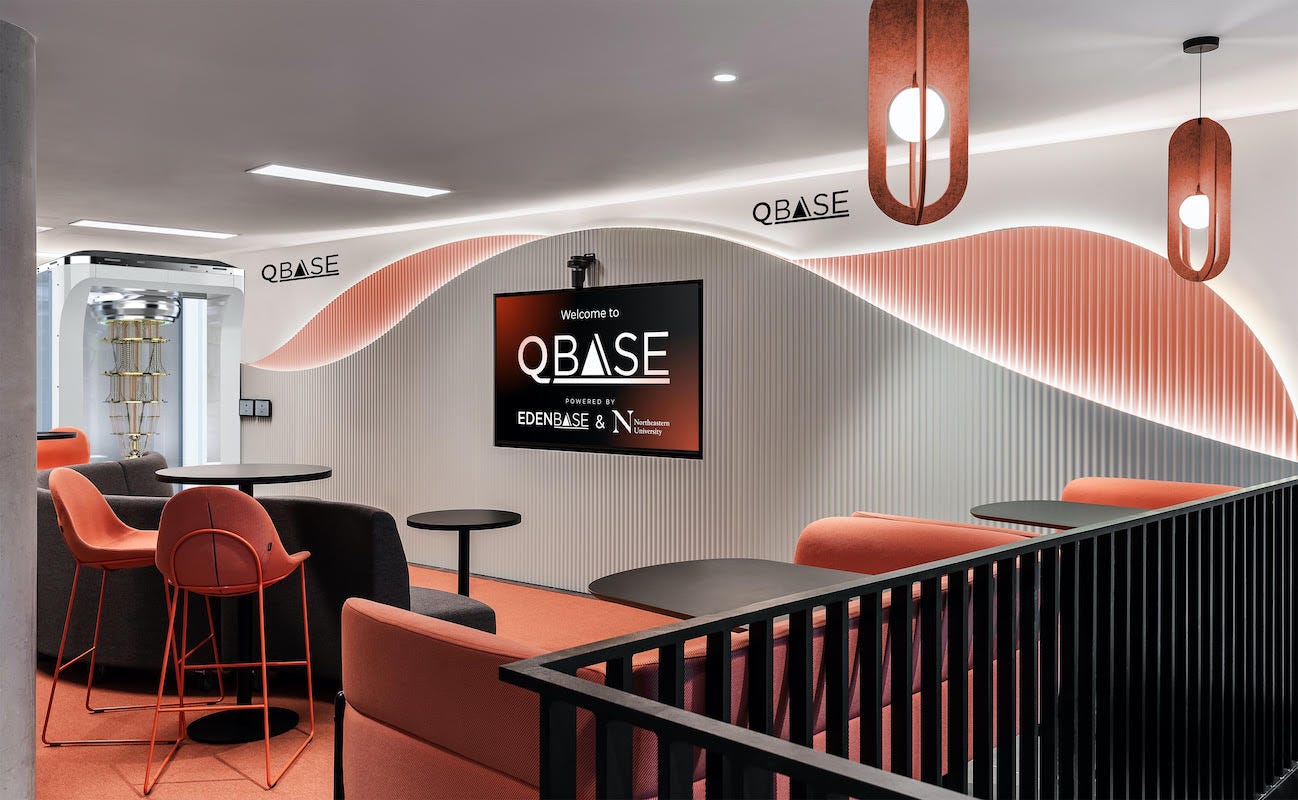How QBase Aims to Make Quantum Practical for Businesses in London
Fintech pioneer Eric Van der Kleij launches a London hub to link quantum startups with real-world enterprise demand

In the heart of London’s financial district, a new initiative is quietly preparing to usher in a new computing era. QBase, a dedicated hub for quantum startups and businesses, aims to bridge the gap between frontier technology developers and the corporates that benefit most from their breakthroughs.
Founded by EdenBase, a venture investment platform, QBase is a launchpad for practical quantum applications. The space will host startups, provide executive education for businesses, and create revenue-sharing opportunities through technology deployment.
This initiative is based on a central belief: that quantum computing is approaching its “ChatGPT moment”—the point at which it becomes accessible and impactful across industries, much like generative AI did when it became mainstream in 2022. The team behind QBase wants London to be ready.
A Fintech Veteran Eyes Quantum
QBase is the latest project from Eric Van der Kleij, best known for building Level39, one of the world’s most recognized fintech hubs. His work has helped scale companies like Revolut and shaped policy through initiatives like Tech City and Tech Nation.
“So previously, I'm quite well known in the UK for creating Level39, which is probably one of the world's most famous FinTech hubs,” Van der Kleij said. “Companies like Revolut started with me as 11 people and grew into a $30 billion business within five years.”
A fintech entrepreneur at heart—his fraud prevention startup Adeptra was sold to FICO in 2012—Van der Kleij has consistently positioned himself at the forefront of emerging technologies. His pivot to quantum came after careful consideration of timing and impact.
“As an entrepreneur, I've been fortunate to be involved in and benefit from each wave of technology advancement,” he explained. “Quantum promises to solve some of the world's biggest, toughest problems, but it is a bit like the technology of AI back in 2021—a little bit inaccessible.”
“We believe that the quantum stage at the moment is maybe two years away from its ChatGPT moment,” he added.
More Than Just Desks
QBase is not just another co-working space. While startups will pay for desks and services—“that just covers the bills,” Van der Kleij noted—the deeper value lies in building a dynamic ecosystem where businesses and innovators can meet and grow together.
“The real magic of QBase will be: it'll be the place where business learns about quantum to achieve quantum advantage,” he said.
This will be achieved through two primary business models. First, QBase will provide executive education, running programs to help businesses understand quantum computing and how it can be applied to their challenges. Second, QBase will broker partnerships between companies and quantum vendors, earning revenue through revenue-sharing arrangements when deals are made.
Van der Kleij emphasized that QBase's long-term value rests in its role as a venture platform. “Our true value lies in our investments in these companies. Our job is to help ensure that they achieve their desired success.”
Strategically Placed in London
QBase’s location is a strategic choice. Unlike previous tech hubs focused on proximity to academic institutions or venture firms, QBase is embedded in London’s financial core, within walking distance of Lloyds of London, the Bank of England, and prominent asset managers.
“The important thing that I learned about building a hub is to try to make it as close as possible to your potential customers,” Van der Kleij said. “As Qbase is based in the heart of the City of London, they can walk in at lunchtime to learn about quantum.”
At a glance, quantum technology may seem niche, but it is part of a growing global race. Countries around the world have already outlined national quantum strategies. Businesses, meanwhile, are beginning to realize the potential applications in finance, pharmaceuticals, logistics, and beyond.
Van der Kleij told TechJournal.uk on the sidelines of the Commercialising Quantum Global 2025 in London on May 14 that QBase aims to be a center of excellence for quantum and quantum-AI innovation. The EdenBase Quantum Fund will be an anchor resident, investing in early- and growth-stage startups based at the hub.
As Daniel Doll-Steinberg, EdenBase Co-Founder, put it: “Quantum computing today is where generative AI was in 2020… now is the time to prepare.”
The Road Ahead
Van der Kleij is no stranger to helping technologies transition from promising ideas to scalable businesses. His legacy with Level39 and Tech City helped make London a fintech powerhouse. That initiative, launched under Prime Minister David Cameron in 2011, was part of a broader national effort to put the UK on the global tech map.
“London is the second-largest tech ecosystem globally, following Silicon Valley,” Van der Kleij said. “Some of the most significant quantum and AI companies have originated in and around London and the U.K.”
QBase is designed to take advantage of that foundation, not just as a workspace but as a launchpad. Startups will gain access to capital, technical support, and global networks. Investors will find a curated deal flow. Companies will get hands-on with emerging solutions before they become mainstream.
“As quantum approaches its ChatGPT moment, this is the time when the best value will be created for early investors,” Van der Kleij said.
If he’s right, QBase could be where quantum becomes business-ready. And London, once again, could be the first to capitalize.



